
SNAKING ALONG Africa’s south-eastern coast, Mozambique boasts a list of some 780 bird species. Despite its turbulent history, for birders it is one of the most exciting areas in the region, with many ornithological mysteries still to be unravelled. It is also accessible and safe and its incredible diversity of habitats holds a plethora of sought-after species. Southern Mozambique is the only place to see 15 of the subregion’s specials, such as Saunders’s Tern, Böhm’s Bee-eater, Green Tinkerbird, Green-headed Oriole, White-chested Alethe, East Coast Akalat, Black-and-white Shrike-flycatcher, Mascarene Martin and Olive-headed Weaver. And for a further 35 species, including Blue Quail, Eurasian Bittern, African Pitta, Chestnut-fronted Helmet-shrike, Locust Finch and Lesser Seedcracker, it is the easiest place to see them. For the more adventurous, northern Mozambique is home to more than 50 species not found in southern Africa, including the country’s two endemics: Namuli Apalis and Mozambique Forest-warbler.
Bu hikaye African Birdlife dergisinin September/October 2022 sayısından alınmıştır.
Start your 7-day Magzter GOLD free trial to access thousands of curated premium stories, and 9,000+ magazines and newspapers.
Already a subscriber ? Giriş Yap
Bu hikaye African Birdlife dergisinin September/October 2022 sayısından alınmıştır.
Start your 7-day Magzter GOLD free trial to access thousands of curated premium stories, and 9,000+ magazines and newspapers.
Already a subscriber? Giriş Yap

EXPLORING NEW HORIZONS
Keith Barnes, co-author of the new Field Guide to Birds of Greater Southern Africa, chats about the long-neglected birding regions just north of the Kunene and Zambezi, getting back to watching birds and the vulture that changed his life.

footloose IN FYNBOS
The Walker Bay Diversity Trail is a leisurely hike with a multitude of flowers, feathers and flavours along the way.
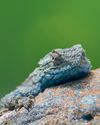
Living forwards
How photographing birds helps me face adversity
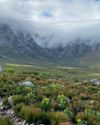
CAPE crusade
The Cape Bird Club/City of Cape Town Birding Big Year Challenge
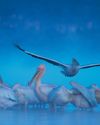
water & WINGS
WATER IS LIFE. As wildlife photographer Greg du Toit knows better than most.
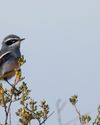
winter wanderer
as summer becomes a memory in the south, the skies are a little quieter as the migrants have returned to the warming north. But one bird endemic to the southern African region takes its own little winter journey.

when perfect isn't enough
Egg signatures and forgeries in the cuckoo-drongo arms race

Southern SIGHTINGS
The late summer period naturally started quietening down after the midsummer excitement, but there were still some classy rarities on offer for birders all over the subregion. As always, none of the records included here have been adjudicated by any of the subregion's Rarities Committees.

flood impact on wetland birds
One of the features of a warming planet is increasingly erratic rainfall; years of drought followed by devastating floods. Fortunately, many waterbirds are pre-adapted to cope with such extremes, especially in southern Africa where they have evolved to exploit episodic rainfall events in semi-arid and arid regions. But how do waterbirds respond to floods in areas where rainfall - and access to water - is more predictable? Peter Ryan explores the consequences of recent floods on the birds of the Western Cape's Olifants River valley.
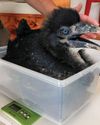
a star is born
It’s every producer’s dream to plan a wildlife television series and pick the right characters before filming.